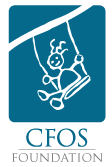Published In: Puget Sound Business Journal - on May 12th 2009
Author: Alwyn Scott
Big companies get a lot of attention for their charitable work and giving. With billions in revenue and thousands of employees, they can make major contributions, score impressive results, and earn goodwill around the world.
But small companies know this: they can make a difference, too.
Those that give say charitable work is a vital part of their business — and their place in the community.
“If Bill Gates can do it and Boeing can do it, why shouldn’t the little guys do it?” said Tom Varga, founder and managing partner of CFO Selections, a small Bellevue company that provides executive services.
“Gates will do it a country at a time. We’ll make a difference one kid at a time.”
Besides engendering goodwill among clients and employees, giving back helps raise a company’s visibility, burnish its reputation, and can even bring new business.
According to a 2002 national survey sponsored by the Better Business Bureau Wise Giving Alliance, 91 percent of all small businesses with between four and 99 employees support charitable organizations on some level, whether it’s outright cash gifts, fundraising for the local hospital, or sponsoring a Little League team.
“They recognize the importance in supporting causes in their communities,” says Bennet Weiner, the alliance’s chief operating officer. “They are inclined generally to support charities in their back yard – for obvious reasons. That’s where their customer base is.”
In Varga’s case, the CFO Selections Foundation set its mission as giving “time, talent, and treasure to Washington children in need.” That focus ruled out scholarships to straight-A students and kept things very local. The foundation also decided to target organizations with revenue of less than $1 million a year, so it would help the smallest groups flourish.
It has given two unrestricted grants so far (that’s the “treasure”): $20,000 to Friends of the Children, which helps high-risk kids in King County; and $5,000 to Divine Alternatives for Dads Services (D.A.D.S.), which helps fathers who are living apart from their children stay involved and connected.
Just as important is giving time from its stable of executives to help groups set up budgets, manage cash flow, and forecast their finances, Varga said. Last year the foundation received $52,000 from the company, and despite the ravaged economy is on track to at least that amount in 2009. “It’s important,” Varga said.
The company contributes monthly to the foundation, much like a 401(k) program. Varga said that helps keep the contribution prioritized and consistent. It’s like a line item on the budget.
While the amounts are relatively modest, Varga says the foundation’s small gifts can target very precise needs. “Who’s to say that a $5,000, $10,000, or $20,000 grant that we make isn’t as impactful as the big guys?” he said. “I think you need both.”
Argosy Cruises has boats — and that’s a big plus when it comes to giving. Those assets, like the talent at CFO Selections, can be put to good use in the community, said Cary Clark, director and co-owner of Argosy, which recently acquired Tillicum Village on Blake Island.
The boats transport school kids for a day of marine biology learning and ferry campers to and from Camp Sealth on Vashon Island. These and other excursions at deeply discounted prices subsidize programs that couldn’t afford to operate otherwise.
Twice a year, children with cancer who are at Camp Goodtimes, and their siblings, board an Argosy ship piloted by Capt. Paul Dudly, dressed as a pirate, for a cruise, a stop at Tillicum Village and a roast salmon lunch. “It’s a chance for them to just be kids,” Clark said.
On Christmas Eve, an Argosy boat provides a cruise for children and their families from Ronald McDonald House who can’t get home for the holidays.
The organization also donates to support the Seattle Aquarium and the Seattle Times Fund for the Needy. It has given about $800,000 to the two organizations in total, over many years.
“It means a lot to our employees,” who also donate their time, said Clark. “It creates a high sense of goodwill with our employees to see good being done.”
It is possible to be small and international in focus.
Parsons Public Relations went to Costa Rica to protect endangered leatherback sea turtles. A deal to promote horticultural tours in the Central American country drew Parsons staffers there about six years ago to see the turtles.
As a result, Parsons adopted a three-kilometer stretch of coastline to help protect the turtles from locals who make soup from the turtles and eat their eggs with beer. Since that start, Parsons has adopted another three kilometers of coast and raised $50,000 to build an educational center near the beach. It is raising another $250,000 to open more centers in urban areas.
“What an amazing experience!” said Joanie Parsons, president of the agency. “We try to capture the eggs while the turtles are giving birth. The turtles are moaning and you are right there. It’s a visceral experience with water crashing up on the beach.”
Like many businesses with fewer than a dozen employees, Parsons is limited in what it can do. But its efforts can still pack a punch, Joanie Parson said.
“We can’t give the dollars somebody else can that has a big name or a big corporation. But if we can inspire a small group of people to do a great thing or something that is the inspiration for others who can give their money and time — what a beautiful thing that is.”

